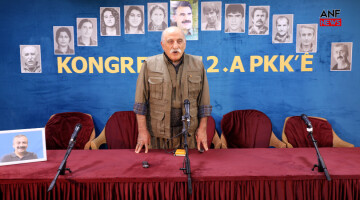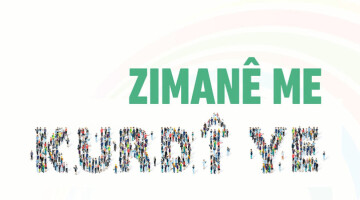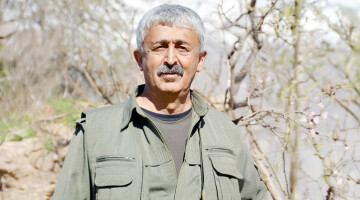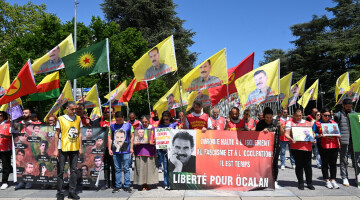Court decision has been issued in two separate cases against ETHA (Etkin News Agency) and ANF (Fırat News Agency) reporter Arzu Demir due to her books “The Womanly State of the Mountain” and “Rojava State of Revolution”.
Demir was sentenced to 3 years in jail in each of the cases for allegedly “spreading propaganda for a terrorist organization”.
Gülhan Kaya, a lawyer from the Law Bureau of the Oppressed (EHB) stated that Demir was sentenced to three years although the lower limit in the "terrorist propaganda" sentence was one year, and this is raised to two years when it is done through press. She noted that the court based Arzu Demir's sentence on a lower limit of two years, describing the court ruling as a particular sentence.
Lawyer Kaya recalled that the investigation against Demir's book “The Womanly State of the Mountain” was launched over its 7th edition, adding: “This case had been opened already before the publication of the book, which means the book was published after the presentation of the case.”
“The Womanly State of the Mountain in War, Peace and Freedom” which was published by Ceylan Publications tells about the liberation process of women freedom fighters through portraits of 11 female guerrillas.
In April, 2016 Istanbul 6th Criminal Court of Peace suggested that the book on gender roles in the lives of 11 female guerrillas spread ‘PKK propaganda,’ and ordered the seizure of the book and the ban of its sales and distribution. The book was first published in October 2014 and was republished for 7 times in one and a half years.
In the book, Demir looks for answers to questions such as ‘Why did you join the guerrilla?’, ‘How do the traditional roles for women and men manifest themselves in the mountains?’, ‘Why women adhere to Abdullah Öcalan?’ and ‘What do you think about love?’ through the personal experiences of women from different regions who joined the guerrilla ranks on different dates.
During the same days, Istanbul 2nd Criminal Court of Peace banned the book ‘Rojava State of the Revolution’ which was published in July 2015 and republished later 3 more times. The court decision to ban came right after social media accounts linked to special operations police and gendarme forces targeted the book online.














